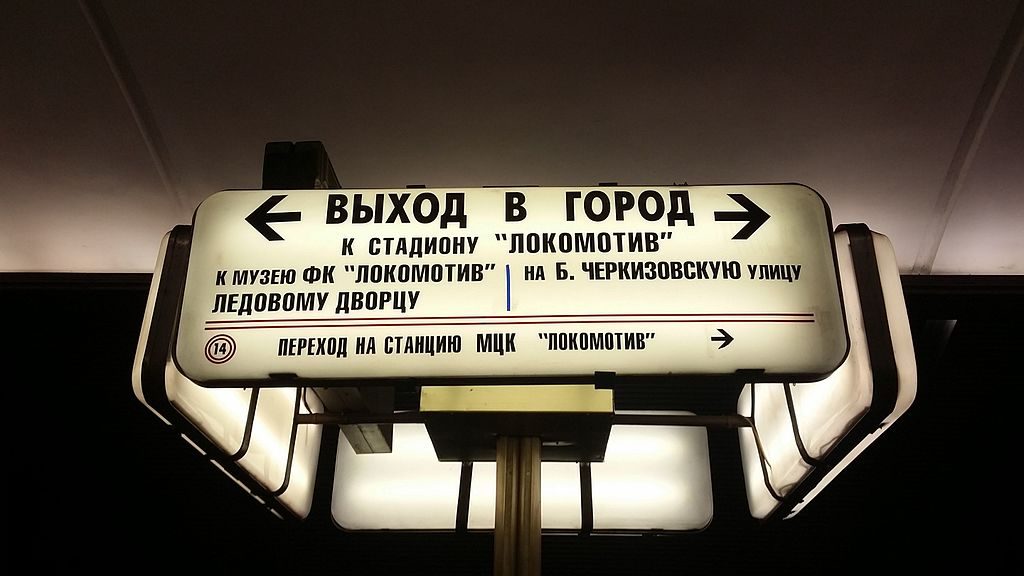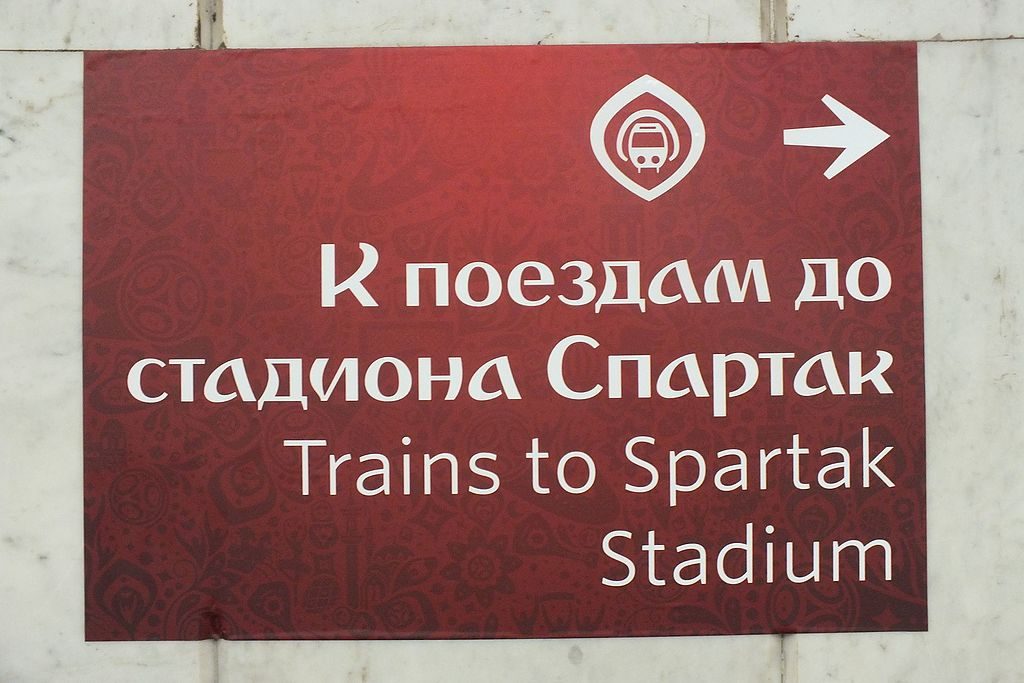Why Are Russian Place Names So Long? Posted by Maria on Oct 29, 2018 in when in Russia
Perhaps one of the things you noticed when visiting Russia is how long the city and street names were. Maybe you never quite learned to sound out the name of the metro station closest to your hotel. “Novo… whatever,” you’d say, before taking off. Why do Russian names have to be so bulky? The answer lies in the Russian grammar and writing system.
Grammar
You might have heard in your linguistics class, if you ever took one, that Russian is a inflected language. What that means is that Russian uses morphemes (parts of the word like suffixes or endings) to express grammatical meanings, such as tense, gender, case, etc. For example, in the sentence “Ребёнок рад пода́рку” (“The child is happy to receive a gift”), the ending –у in подарку conveys the following information: noun, second declension (used for masculine and neuter nouns), singular, and dative case.
Moreover, suffixes are widely used to form certain parts of speech. For instance, “fall weather” is not “осень погода” but “осе́нняя пого́да.” The suffix -н- and the ending -яя transform the noun “осень” (“autumn, fall”) into the corresponding adjective.
This brings us to Russian place names. They tend to contain all these little elements that convert the initial building blocks into the appropriate part of speech in the right gender, resulting in sometimes unwieldy designations.
Take, for example, the Moscow station name Красносе́льская (Krasnosel’skaya). What a mouthful, right? The station is named after the street bearing the same name. If we break it down, we see that this name comes from кра́сное село́ (“red village” or “beautiful village”). By adding the suffix -ск-, we make this word into an adjective, while the feminine ending -ая makes it agree with the feminine noun у́лица (street) or ста́нция (station).
Transliteration
Another reason for why Russian names look so intimidating in English letters is that there is no one-to-one correspondence between the Cyrillic and the Latin alphabets. As a result, it is not always clear how to read some of the transliterated names. Using the principles described above, if you read Russian, you can figure out the components of the city name Благове́щенск—блага́я весть (“good tidings”).
However, if you read this name in English—Blagoveshchensk—your eyes probably glaze over at the sight of “shch.” How in the world are you supposed to say that?! This unwieldy letter combination is how the Russian letter щ (pronounced as a soft “sh”) is transliterated according to some systems. Similarly, Заха́рьевская у́лица turns into Zakharyevskaya. If you don’t know that kh stands for х (breathy h sound) and “ye” is pronounced “yay” and not “eye,” you might as well give up when you see this name.
The Takeaway
Now you know that grammar and transliteration both make Russian place names tricky for people from abroad, but how does that help you? You’re reading this blog, which I hope means you are learning Russian. Learn to read Russian letters. Little by little you’ll learn to recognize the most common suffixes and endings.

Build vocabulary, practice pronunciation, and more with Transparent Language Online. Available anytime, anywhere, on any device.






Comments:
Rafail:
Hi Maria,
Thanks for the article.
But if russian is difficult for foreingners, wat you say about kazakh language?
Kazakh language is a language of endings.
Maria:
@Rafail Hi Rafail,
Thank you for your comment. That’s an excellent point. I don’t speak Kazakh, so I can only comment from a linguistic point of view. While Russian is inflective, and one ending combines multiple meanings, as far as I know, Kazakh is agglutinative, meaning that there is a separate suffix for each separate meaning (case, number, etc.). I imagine that results in long strings of suffixes/endings.
Do you speak Kazakh? Is my understanding accurate?
The only Turkic language I see this table of how hard a language is for an English speaker is Turkish, placed in the “medium” category. Do you think Kazakh would be in that category, too?
Michel:
Привет, Мария, я начал изучать русский язык четыре года назад. Я использую все средства для улучшения своего уровня. Мне нравится этот язык, и я хотел бы быть в состоянии выразить себя и понять легче. Я смотрю много российского телевидения. Я живу во Франции.
С уважением
Maria:
@Michel Добрый день, Мишель! Спасибо за комментарий и удачи в изучении русского.
For the benefit of our beginner readers, I will write the rest of this comment in English.
The Russian in this comment is excellent, yet some turns of phrase make me think Google Translator might have been involved. That’s totally fine; it’s getting better every day. However, here are a couple of things that could be improved.
Normally, you would use здравствуйте with a stranger. Привет is a bit informal. Unlike in US English, where “Hi X” is a friendly opener of an email to a stranger, it is only used with friends in Russian.
“Хотел бы быть в состоянии” > “хочу уметь”
“Понять легче” > “лучше понимать” (“понять” is perfective and is used for one-time actions)
Best of luck in your Russian-learning journey!